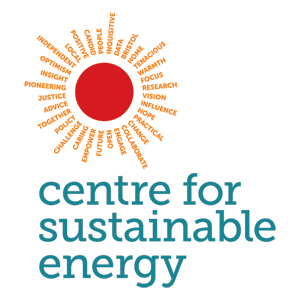Energy Collaborate events relaunched
On Wednesday, 12 May, the Energy Collaborate meetings re-launched with a collaboration between CAG and Low Carbon Hub.
Energy in your community, what’s possible?
Low Carbon Hub and the CAG Network were pleased to restart their Energy Collaborate meetings last month to learn more about how we can support our community groups and individuals with community energy and energy efficiency projects.
There are currently 34 low carbon community groups that are members of the Low Carbon Hub CIC and many are also members of the CAG Network. Together, they make a significant contribution to reducing the effects of climate change by organising regular carbon-saving activities in their communities. Energy efficiency and energy generation are consistently popular subjects across most of the groups, so we decided to hold a series of joint discussions to share knowledge and experience of local energy projects.
We hope the meetings will be an opportunity to explore community-scale renewable energy sources such as solar, wind and hydropower. As well as being an opportunity to talk electric heating, electric vehicles, and improving our energy efficiency. We will introduce examples of where projects have worked (and where they haven’t ) and what learning we can take from them into our communities.
Our first meeting covered several topics, including opportunities for solar panels in our communities, encouraging local businesses to invest in energy saving measures in the workplace and how small and medium enterprises could benefit from an energy audit of their premises.
Powering up in communities
James Ochiltree (Project Manager, Low Carbon Hub) introduced the Low Carbon Hub’s rooftop solar projects – which now stands at 50 installations around the county, contributing to a potential annual generation of 4.5 GWH (enough to power 1,465 homes!) – and kick-started the discussion around what sort of solar power can be possible in smaller communities.
With the removal of the Feed-in Tariff and a lack of other incentives for local generation (mainly due to changes in legislation), it is, unfortunately, becoming harder for projects to be financially viable. Although not impossible, especially if groups can crowdsource the funding for them. However, it was great to discuss potential projects in the various community group locations, such as Rose Hill Primary School and Kirtlington Village Hall. Several groups, including Thame Green Living, are involved in the Solar Streets initiative which provides a discount if a group of streets sign up to a solar installation together.
Several people expressed bewilderment that district and county councils were not doing more to install solar panels on large public roof tops and council owned estates. It could be a possible future meeting topic.

Resource:
The Centre for Sustainable Energy (CSE) have some great resources on their website.
Specifically they also have some advice on working with local authorities and councils. Read more on their website.
Last year, CSE launched a new series of action planning workshops, designed to help town and parish councils across the UK take practical action on their climate emergency declarations.
Climate charity Ashden also have some resources on working with Local Authorities to create sustainable towns and cities.
Powering down in communities
Moira Dorey (Lead Assessor, Environment Information Exchange, Oxford Brookes University) presented the OxFutures programme to the group. OxFutures is a programme that offers free energy audits to Small and Medium Enterprises (SMEs) in Oxfordshire to help them identify energy-saving opportunities, reduce energy bills and cut carbon emissions.
The project has, so far, delivered energy audits to over 130 businesses and funded the installation of energy saving measures at 28 of them, improving their competitiveness and reducing their energy bills and CO2 emissions. A further 14 innovation companies have received funding for their projects, boosting Oxfordshire’s development as a UK leader in the new low carbon economy.
When asked what communities could do to help organisations increase their energy efficiency, Moira said that getting them to sign up for an OxFutures free energy audit would be the most impactful. In terms of taking simple but effective action, changing to LED lighting has the quickest benefit for most organisations as it can be installed easily and can make a difference straight away. The cost of installation is likely to be repaid within one to two years by the saving in energy.
Richard Dorey, Business Development Manager for Low Carbon Hub spoke about Low Carbon Hub’s newest programme: Energy Solutions Oxfordshire (ESOx). Energy Solutions Oxfordshire (ESOx) is a one-stop service, making it simple for businesses in Oxfordshire to undertake energy efficiency improvements to make assured savings on their energy bills, reduce their carbon emissions, and improve the comfort of their buildings for staff and customers.
It was great to hear everyone’s ideas, plans, and experiences in a meeting that really encouraged community action and peer learning between organisations and across community groups.
Our next meeting will be Thursday 15 July, please let us know if you have a particular theme you would like to explore by emailing Christabel or Cathy. Future meetings will touch on community-led energy initiatives, electric vehicle schemes, and energy audits!
